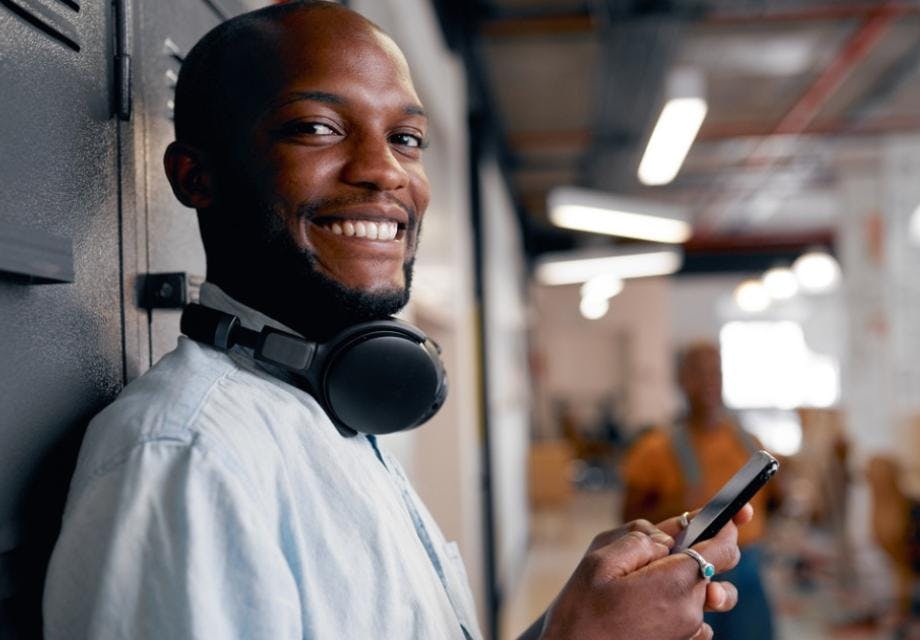“What if I get sick, where shall I go?”
Hester Phillips
11 January 2024
Bad experiences in public health and campus clinics stops young gay men seeking services, even in private or LGBT-friendly clinics, interviews with Kenyan university students has found
An investigation into the healthcare experiences of gay students in Nairobi suggests stigma and discrimination in public and campus facilities puts some off getting help, even if they can afford a private clinic.
What is the research about?
What young gay and bisexual men in Nairobi think of healthcare. Researchers interviewed 22 young men (ages 18-24) about using public, campus and gay-friendly clinics (which are all free) plus private and for-profit community pharmacies. All participants were college or university students and were HIV negative.
Why is this research important?
Gay and bisexual men are at heightened risk of HIV and sexually transmitted infections (STIs). Young gay and bisexual men are particularly at risk. But homophobia and criminalisation means many are reluctant to use sexual health services. Understanding young gay men’s current healthcare experiences is the first step to improving the situation.
What did they find out?
Participants had experienced stigma and discrimination in public and campus facilities when seeking sexual health services. Some spoke of being pressurised by a health worker to disclose gay sex, then being gossiped about in the clinic. Participants worried this gossip would spread, putting their safety at risk. Some said they were denied treatment for anal warts, despite campus clinics treating other STIs.
To protect themselves, some chose not to disclose their sexuality in public and campus clinics, and only used them for non-sexual health services. Some participants who had been treated badly avoided visiting that facility again, even for a non-sexual health issue. As Dylan, 24, explained: “The fear of going to that place… those people know who I am, so I won’t go there.”
Some participants who could afford it got sexual healthcare from private facilities and community pharmacies. They said staff in these facilities treated them well. Gay-friendly clinics were also viewed positively with the added benefit that they were free.
But bad experiences in public and campus clinics stopped some young men from seeking sexual health services altogether, even in private or gay-friendly clinics.
Participants were asked about their health needs, and three main issues emerged. Many asked for mental health services, especially counselling. One of the biggest emotional challenges was accepting their sexuality and dealing with family rejection because of it.
Participants also wanted sexual health information and access to HIV and STI prevention, including PrEP, PEP, condoms, HIV self-testing and STI screening.
Participants also wanted support for substance abuse. They said drug and alcohol use was common.
Being empathetic, non-judgmental and knowledgeable about gay sexual health needs were the characteristics participants most valued in health workers. Participants were more interested in inter-personal skills than a health worker’s gender or sexuality. As Jamie, 21, said: “The doctor doesn’t have to be LGBTQ. He or she just has to be open-minded.”
Digital health interventions
Most (95% of participants) owned a smart phone. They were interested in getting sexual health information and consultations online, as this could be discreet and anonymous. Online shopping was also seen as a discreet way to buy condoms and lubricants.
What does this mean for HIV services?
This is more evidence of the need for community-led training for public health workers so that gay and bisexual men can feel confident about being treated with respect when they need sexual healthcare.
There is also a need to train campus health staff. Like other students, young gay and bisexual men should be able to access appropriate sexual health services on campus. Especially young men who have moved away from home to study and may not know where they can get gay-friendly services, and for those who cannot afford to go private. Promoting gay-friendly clinics to students should also be considered.
Digital interventions could also improve young gay men’s access to sexual health information and services, as they are more likely to be stigma-free. Be in The Know is one such source of information and can be easily shared.
Get our news and blogs by email
Keep up-to-date with all our latest news stories and blogs by signing up to the Be in the KNOW news digest.
